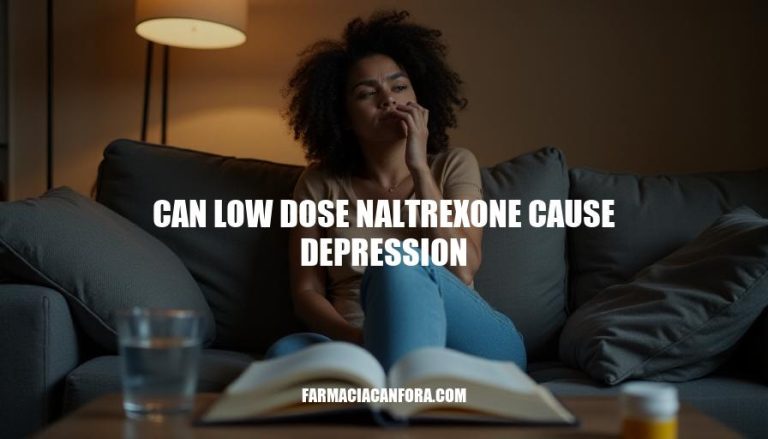


Low-dose naltrexone is a medication that’s usually used to treat addiction. But at lower doses, it might help with things like fibromyalgia, chronic fatigue syndrome, autoimmune disorders, and chronic pain. It works by blocking opioid receptors for a short time, which helps increase the body’s natural painkillers called endorphins.
Low-dose naltrexone (LDN) operates through several mechanisms in the body. At low doses, naltrexone acts as an antagonist to opioid receptors, but this interaction is brief and transient. This transient blockade leads to a paradoxical increase in endogenous opioids like endorphins and enkephalins.
These endogenous opioids then exert regulatory control over immune cells by binding to opioid growth factor receptors (OGFr), which are primarily expressed on immune cells. This binding inhibits cell proliferation and modulates immune responses.
Additionally, LDN blocks toll-like receptor 4 (TLR4) on immune cells in the central nervous system (CNS), which triggers a shift from pro-inflammatory cytokine production to anti-inflammatory cytokine production. This anti-inflammatory effect is thought to be beneficial in conditions associated with chronic inflammation.
Several studies and clinical trials have explored the potential link between LDN and depression.
One notable study is a randomized, double-blind, placebo-controlled trial conducted by researchers at the University of Auckland. This study aimed to investigate the effects of LDN as an adjunctive treatment for major depressive disorder (MDD). Participants with MDD were stratified into high and low inflammatory groups based on high-sensitivity C-reactive protein (hs-CRP) levels and randomized to receive either LDN or a placebo for 12 weeks.
The primary outcome measure was the Montgomery-Åsberg Depression Rating Scale (MADRS), administered at multiple time points throughout the study.
The results of this study suggested that LDN might have a beneficial effect on depression, particularly in individuals with high levels of inflammation. However, more robust studies with larger sample sizes are needed to draw definitive conclusions.
Another study conducted by Massachusetts General Hospital explored the use of LDN as an add-on treatment for depression relapse and recurrence. This pilot study found that patients with breakthrough depression on a dopaminergic antidepressant regimen showed greater improvement when supplemented with LDN compared to those receiving a placebo.
While these studies provide promising insights into the potential benefits of LDN for depression, it is important to note that the evidence is still preliminary, and further research is necessary to establish its efficacy and safety in treating depression.
In summary, LDN operates through mechanisms involving the modulation of opioid receptors and immune responses, and preliminary studies suggest it may have potential as an adjunctive treatment for depression, particularly in individuals with high levels of inflammation.
However, more research is needed to confirm these findings and establish LDN as a standard treatment for depression.
The relationship between low-dose naltrexone (LDN) and depression is complex, and current evidence suggests that LDN may have both positive and negative effects on mood.
Some studies suggest that LDN might be beneficial in treating depression, particularly in individuals with high levels of inflammation. A randomized controlled trial found that LDN improved symptoms of major depressive disorder in patients with high inflammatory markers. Another study showed that adding LDN to a dopaminergic antidepressant regimen led to greater improvement in patients with breakthrough depression.
However, it is essential to note that the evidence for LDN’s efficacy in treating depression is still preliminary and based on limited research. More robust studies are needed to confirm these findings and establish LDN as a standard treatment for depression.
In contrast, some individuals may experience worsening of depressive symptoms while taking LDN, although this appears to be rare. The exact mechanisms underlying these effects are not well understood and require further investigation.
Given the current state of knowledge, patients considering or currently using LDN should be aware of the potential risks and benefits. If you are experiencing depression or other mood-related symptoms while taking LDN, it is crucial to discuss your concerns with your healthcare provider. They can help you weigh the potential benefits against the risks and adjust your treatment plan accordingly.
Ultimately, more research is necessary to fully understand the relationship between LDN and depression. Patients should approach LDN as a potentially beneficial adjunctive therapy under close medical supervision, rather than relying solely on it for mood management.